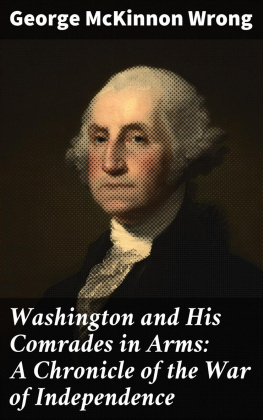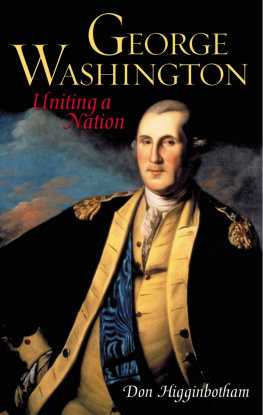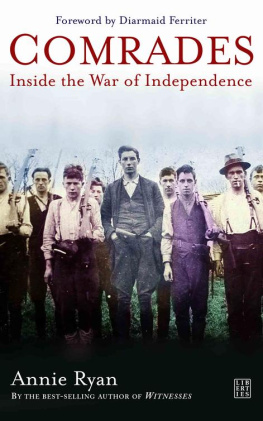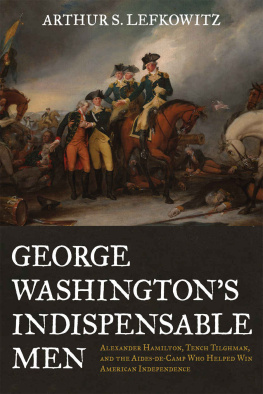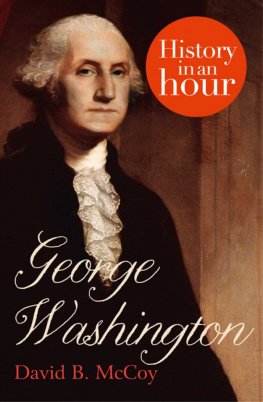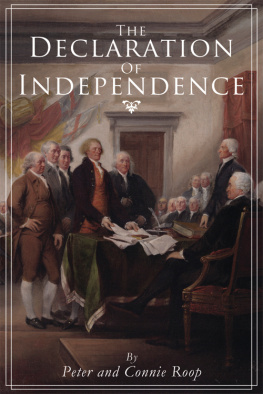Table of Contents
The Commander-In-Chief
Table of Contents
Moving among the members of the second Continental Congress, which met at Philadelphia in May, 1775, was one, and but one, military figure. George Washington alone attended the sittings in uniform. This colonel from Virginia, now in his forty-fourth year, was a great landholder, an owner of slaves, an Anglican churchman, an aristocrat, everything that stands in contrast with the type of a revolutionary radical. Yet from the first he had been an outspoken and uncompromising champion of the colonial cause. When the tax was imposed on tea he had abolished the use of tea in his own household and when war was imminent he had talked of recruiting a thousand men at his own expense and marching to Boston. His steady wearing of the uniform seemed, indeed, to show that he regarded the issue as hardly less military than political.
The clash at Lexington, on the 19th of April, had made vivid the reality of war. Passions ran high. For years there had been tension, long disputes about buying British stamps to put on American legal papers, about duties on glass and paint and paper and, above all, tea. Boston had shown turbulent defiance, and to hold Boston down British soldiers had been quartered on the inhabitants in the proportion of one soldier for five of the populace, a great and annoying burden. And now British soldiers had killed Americans who stood barring their way on Lexington Green. Even calm Benjamin Franklin spoke later of the hands of British ministers as red, wet, and dropping with blood. Americans never forgot the fresh graves made on that day. There were, it is true, more British than American graves, but the British were regarded as the aggressors. If the rest of the colonies were to join in the struggle, they must have a common leader. Who should he be?
In June, while the Continental Congress faced this question at Philadelphia, events at Boston made the need of a leader more urgent. Boston was besieged by American volunteers under the command of General Artemas Ward. The siege had lasted for two months, each side watching the other at long range. General Gage, the British Commander, had the sea open to him and a finely tempered army upon which he could rely. The opposite was true of his opponents. They were a motley host rather than an army. They had few guns and almost no powder. Idle waiting since the fight at Lexington made untrained troops restless and anxious to go home. Nothing holds an army together like real war, and shrewd officers knew that they must give the men some hard task to keep up their fighting spirit. It was rumored that Gage was preparing an aggressive movement from Boston, which might mean pillage and massacre in the surrounding country, and it was decided to draw in closer to Boston to give Gage a diversion and prove the mettle of the patriot army. So, on the evening of June 16, 1775, there was a stir of preparation in the American camp at Cambridge, and late at night the men fell in near Harvard College.
Across the Charles River north from Boston, on a peninsula, lay the village of Charlestown, and rising behind it was Breed's Hill, about seventy-four feet high, extending northeastward to the higher elevation of Bunker Hill. The peninsula could be reached from Cambridge only by a narrow neck of land easily swept by British floating batteries lying off the shore. In the dark the American force of twelve hundred men under Colonel Prescott marched to this neck of land and then advanced half a mile southward to Breed's Hill. Prescott was an old campaigner of the Seven Years' War; he had six cannon, and his troops were commanded by experienced officers. Israel Putnam was skillful in irregular frontier fighting, and Nathanael Greene, destined to prove himself the best man in the American army next to Washington himself, could furnish sage military counsel derived from much thought and reading.
Thus it happened that on the morning of the 17th of June General Gage in Boston awoke to a surprise. He had refused to believe that he was shut up in Boston. It suited his convenience to stay there until a plan of campaign should be evolved by his superiors in London, but he was certain that when he liked he could, with his disciplined battalions, brush away the besieging army. Now he saw the American force on Breed's Hill throwing up a defiant and menacing redoubt and entrenchments. Gage did not hesitate. The bold aggressors must be driven away at once. He detailed for the enterprise William Howe, the officer destined soon to be his successor in the command at Boston. Howe was a brave and experienced soldier. He had been a friend of Wolfe and had led the party of twenty-four men who had first climbed the cliff at Quebec on the great day when Wolfe fell victorious. He was the younger brother of that beloved Lord Howe who had fallen at Ticonderoga and to whose memory Massachusetts had reared a monument in Westminster Abbey. Gage gave him in all some twenty-five hundred men, and, at about two in the afternoon, this force was landed at Charlestown.
The little town was soon aflame and the smoke helped to conceal Howe's movements. The day was boiling hot and the soldiers carried heavy packs with food for three days, for they intended to camp on Bunker Hill. Straight up Breed's Hill they marched wading through long grass sometimes to their knees and throwing down the fences on the hillside. The British knew that raw troops were likely to scatter their fire on a foe still out of range and they counted on a rapid bayonet charge against men helpless with empty rifles. This expectation was disappointed. The Americans had in front of them a barricade and Israel Putnam was there, threatening dire things to any one who should fire before he could see the whites of the eyes of the advancing soldiery. As the British came on there was a terrific discharge of musketry at twenty yards, repeated again and again as they either halted or drew back.
The slaughter was terrible. British officers hardened in war declared long afterward that they had never seen carnage like that of this fight. The American riflemen had been told to aim especially at the British officers, easily known by their uniforms, and one rifleman is said to have shot twenty officers before he was himself killed. Lord Rawdon, who played a considerable part in the war and was later, as Marquis of Hastings, Viceroy of India, used to tell of his terror as he fought in the British line. Suddenly a soldier was shot dead by his side, and, when he saw the man quiet at his feet, he said, Is Death nothing but this? and henceforth had no fear. When the first attack by the British was checked they retired; but, with dogged resolve, they re-formed and again charged up the hill, only a second time to be repulsed. The third time they were more cautious. They began to work round to the weaker defenses of the American left, where were no redoubts and entrenchments like those on the right. By this time British ships were throwing shells among the Americans. Charlestown was burning. The great column of black smoke, the incessant roar of cannon, and the dreadful scenes of carnage had affected the defenders. They wavered; and on the third British charge, having exhausted their ammunition, they fled from the hill in confusion back to the narrow neck of land half a mile away, swept now by a British floating battery. General Burgoyne wrote that, in the third attack, the discipline and courage of the British private soldiers also broke down and that when the redoubt was carried the officers of some corps were almost alone. The British stood victorious at Bunker Hill. It was, however, a costly victory. More than a thousand men, nearly half of the attacking force, had fallen, with an undue proportion of officers.


